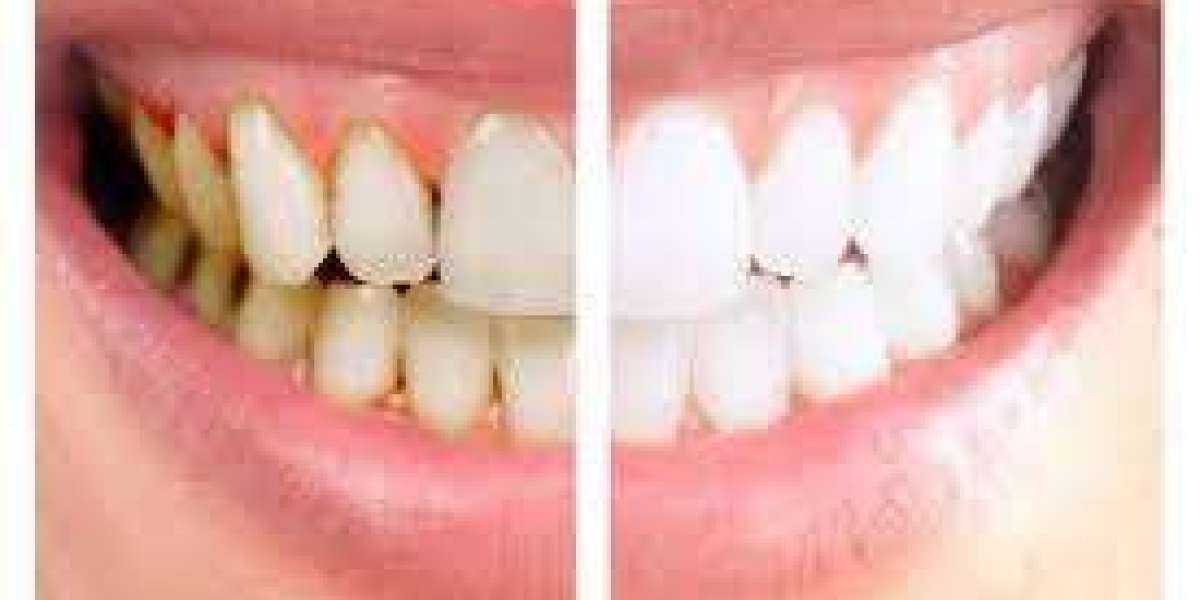Dental care is not just about brushing and flossing; it involves professional procedures that play a crucial role in maintaining oral health. Among these, teeth polishing and scaling are two key processes that contribute to a sparkling smile and overall well-being.
Teeth Polishing & Scaling, also known as dental scaling, is a non-surgical procedure performed by dental hygienists or dentists to remove plaque and tartar from the tooth surfaces. Plaque is a sticky film of bacteria that forms on the teeth, and when it hardens, it becomes tartar or calculus. Scaling is essential because tartar cannot be removed through regular brushing or flossing alone.
During the scaling process, the dental professional uses specialized tools to carefully scrape off the accumulated plaque and tartar from the teeth. It is a preventive measure that helps prevent gum diseases such as gingivitis and periodontitis. By eliminating these bacterial deposits, scaling promotes healthier gums and reduces the risk of inflammation and infection.
Teeth polishing is often performed in conjunction with scaling. Once the teeth are free of plaque and tartar, polishing helps smooth the tooth surfaces, making it more challenging for bacteria to adhere. Polishing also removes surface stains, resulting in a brighter and more aesthetically pleasing smile.
The polishing process typically involves the use of a rotating rubber cup and a gritty toothpaste-like substance known as prophylaxis paste. The dental professional gently applies the paste to the teeth, effectively buffing away surface stains and creating a smoother enamel surface. While the primary goal of polishing is cosmetic, it also plays a role in preventing further plaque buildup.
Both scaling and polishing are vital components of maintaining oral health, and they offer various benefits. First and foremost, these procedures contribute to the prevention of gum diseases. Gingivitis, the early stage of gum disease, often manifests as red, swollen gums that bleed easily. Without proper intervention, gingivitis can progress to periodontitis, a more severe form of gum disease that can lead to tooth loss.
Additionally, scaling and polishing help in the prevention of cavities. By removing plaque and tartar, these procedures reduce the risk of tooth decay, which occurs when bacteria produce acids that erode tooth enamel. Regular scaling and polishing appointments, combined with a good oral hygiene routine at home, form a powerful defense against dental issues.
Furthermore, maintaining optimal oral health has implications beyond the mouth. Numerous studies have established a connection between oral health and systemic health. Poor oral health has been linked to conditions such as heart disease, diabetes, and respiratory problems. By investing in professional dental care, individuals can contribute to their overall well-being.
While scaling and polishing are integral to dental care, it is essential to understand that they are not one-size-fits-all solutions. The frequency of these procedures may vary based on individual oral health needs. Some individuals may require more frequent scaling and polishing sessions due to a higher risk of plaque buildup, while others may need them less frequently.
In conclusion, the art of dental care involves more than just routine brushing and flossing. Professional procedures like teeth scaling and polishing play a crucial role in preventing oral health issues and promoting overall well-being. By unveiling the importance of these processes, individuals can make informed decisions about their oral care, ensuring a radiant smile and a healthier life.



